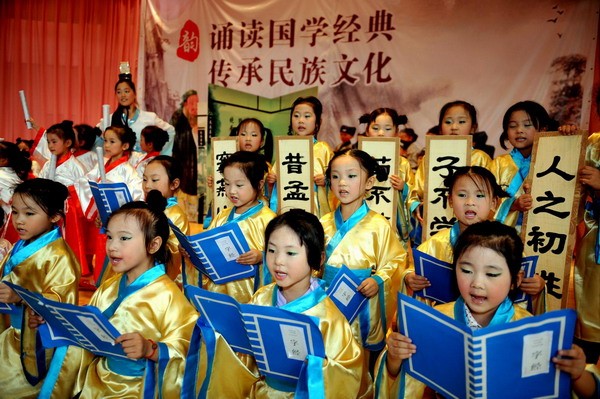China is aiming to expand education coverage for children of preschool age within the next three years, according to a plan jointly released by the education and finance ministries with the National Development and Reform Commission.
Under the plan, the government is targeting about 75 percent of preschool-aged children to receive three years of education ahead of primary schooling by 2016, an increase of 7.5 percent over the current year's ratio.
To achieve the plan targets, the government will be setting up a preschool education network by 2016, with government-sponsored kindergartens and private charitable kindergartens serving as the main active participants. Preferential policy measures will be carried out to provide incentive in attracting the flow of private capital into the preschool education sector.
Additional government support in the next three years will be dedicated to giving focus on providing preschool education for children from disadvantaged regions and impoverished families. Identified shortage of kindergartens in towns and semi-urban areas will be addressed, and increase in the enrollment of disabled children will be encouraged.
Moreover, preschool education cities, towns and economically developed rural areas will continue to be supported, but the enrollment rate in less developed rural areas will be closely monitored until a marked increase is seen over the next three years.
As of 2013 year-end, official records show that China's 198,600 kindergartens have about 38.95 million children enrolled, with the enrollment rate reaching 67.5 percent. It was up 10.9 percent over the previous three-year plan's preschool enrollment figure.
In urban areas, China's preschool education consists mainly of kindergarten classes of one to three years, which could be full time, part-time, boarding or by-the-hour basis. On the other hand, in rural areas, preschool education is mainly nursery classes with some seasonal kindergarten classes given as supplement.
More recently, preschool education in the particularly remote, poor and minority areas has also been augmented with childcare that will help children develop better physically, morally, and intellectually to better prepare them for admission to China's formal basic school education system.






















